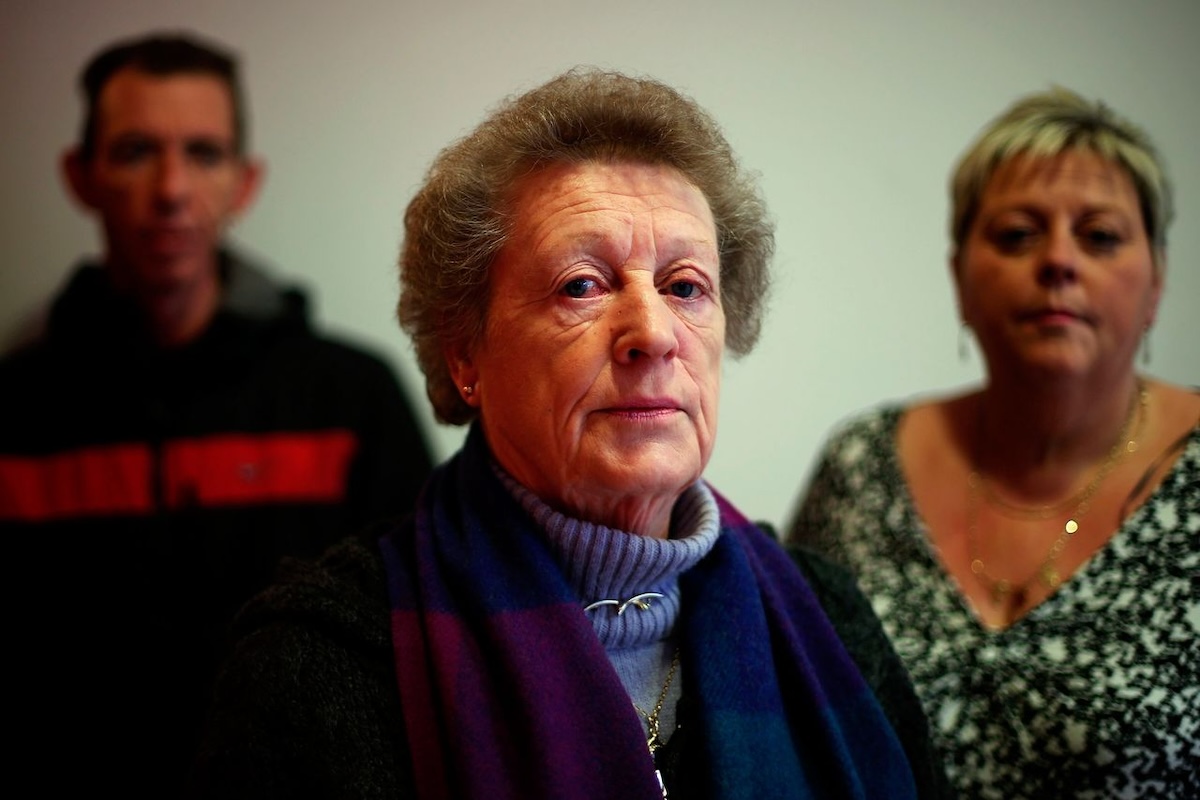
A County Down widow who helped bring to activities of the notorious Glenanne Gang into the public view has died aged 85.
Margaret Campbell’s husband Patrick was gunned down in an attack widely believed to have been carried out by Crown Force agent Robin “The Jackal” Jackson. She died peacefully at home in Banbridge on Friday.
Mrs Campbell had taken a legal case against the PSNI police and British Ministry of Defence and was awarded what was described as a ‘significant’ pay out in 2022 over British state collusion with the loyalist gunman she believed was responsible for her husband’s murder.
Her story had featured in the 2018 documentary ‘Unquiet Graves’ with her testimony considered the most telling contribution to the film. Although her claim over collusion was settled, she said afterwards that despite being relieved her legal battle was at an end, she was still left with “many unanswered questions”.
Jackson, a former British soldier and UVF commander, was a member of the gang which included members of the British forces and UVF paramilitaries and is believed to have been responsible for killing up to 120 people. The activities of the gang are the subject of a police ‘review’ which began more than four years ago.
On October 29, 1973, Margaret opened the front door to their home to two men believing they wanted to talk to her trade unionist husband about a work matter. Instead, they shot the father-of-three nine times. One of the a guns used was later found to have been taken from a British Army base in Lurgan.
Mrs Campbell spoke movingly in Unquiet Graves, directed by Seán Murray, about how her then 10-year-old daughter, Donna, held her father’s head as his life slipped away.
An outspoken opponent of sectarianism, Mr Campbell was involved in a cross-community amateur boxing club in Banbridge . He was an influential and well respected figure in the mainly Protestant town and the Glenanne Gang was known to target Catholics with social standing.
A few weeks after witnessing her husband’s death, Mrs Campbell said two police officers knocked her door and told her she needed to go to Belfast for an identity parade.
Mrs Campbell said she asked could someone go with her but was told “she’d be better alone”.
When she arrived at the station she walked alone into a room where there was a line up of men - including Robin Jackson. She felt faint but said: “I was told to compose myself. I was told to go back in and ‘put your hand on him’.
“I went back in but I could not touch him, I could not put my hand on him.”
Speaking after her civil case against the PSNI and the MoD, Mrs Campbell said: “I didn’t think there would be any other way to go because time is running out on my side.”
But she said she felt she had been let down over many years by authorities and that questions remain about her husband’s murder.
“There’s questions still in my head that I would love answered but unfortunately I won’t get (them).
She said: “It did destroy me for a while, I was on tablets and I just was devastated,” she said. “I did my best to keep going.”
Robin Jackson was charged with the murder of Mr Campbell but the charges were later dropped.
The former British soldier is thought to have been behind some of the worst atrocities of the conflict including the Monaghan bombing in 1974 and the Miami Showband massacre in July 1975, died in June 1998.
![[Irish Republican News]](https://republican-news.org/graphics/title_gifs/rn.gif)
![[Irish Republican News]](https://republican-news.org/graphics/title_gifs/harp.gif)

